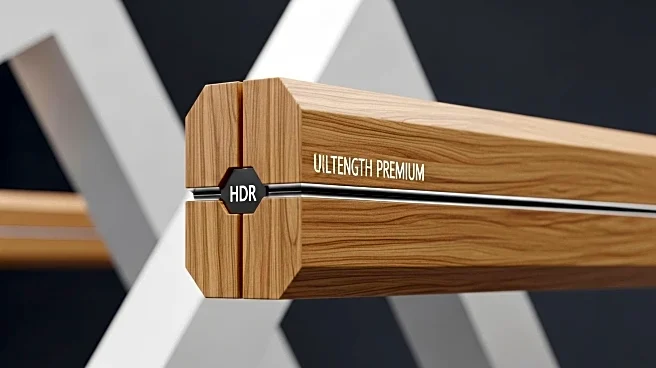What is the story about?
What's Happening?
InventWood, a Maryland-based startup, has introduced 'Superwood,' an engineered timber that is claimed to be up to ten times stronger by weight than steel and six times lighter. Developed by Professor Liangbing Hu, Superwood is created by treating and compressing ordinary wood or bamboo at the molecular level. The process involves cooking the wood in an alkaline solution to strip lignin and then hot-pressing it to align cellulose nanofibers, resulting in a material with significantly enhanced tensile strength. InventWood plans to begin production in 2025, with applications ranging from building facades to structural beams.
Why It's Important?
Superwood represents a significant advancement in materials science, offering a sustainable alternative to steel in construction. Its strength and lightness make it suitable for a wide range of applications, potentially reducing the carbon footprint of building projects. The material's fire resistance and durability further enhance its appeal for construction and automotive industries. As mass-timber construction grows, Superwood could play a pivotal role in reducing global CO2 emissions, provided forests are managed sustainably.
What's Next?
InventWood is scaling up production with a new factory in Frederick, MD, capable of producing over one million square feet of Superwood annually. The company plans to expand applications from exterior panels to interior finishes and eventually structural beams. As the market for mass-timber construction grows, InventWood aims to position Superwood as a premium product, targeting high-value uses. The company has raised $50 million to support production and expects to see significant growth in the coming years.
Beyond the Headlines
While Superwood offers environmental benefits, its large-scale adoption could increase emissions if not managed carefully. The debate over sustainable forestry practices continues, with experts emphasizing the need for well-managed tree plantations to meet demand. InventWood's use of reclaimed and fast-growing trees aims to mitigate environmental impact, but the industry must navigate challenges related to cost, regulation, and building codes.

















